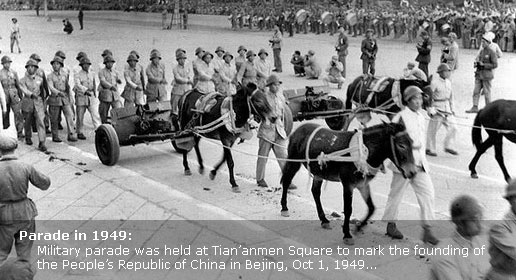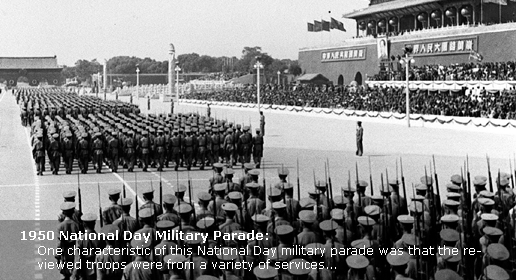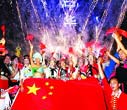Celebrations
National Day celebrated across China with excitement
(Xinhua)
Updated: 2009-10-01 23:01
BEIJING: Chinese people celebrated the 60th birthday of New China in various ways.
An old commander's memory
Sitting at home watching the military parade on TV, the 92-year-old veteran soldier was attentive although he was too old to hear clearly the sound.
"Sixty years have passed...It was really not easy," said Xu Xinzhi with his voice trembled in excitement. He was a retired vice chairman of the Artillery Commander Institute of the People's Liberation Army.
In July 1949, Xu was told to organize a gun salute squad for the founding ceremony in October.
"I was nervous," he recalled. "As soldiers, we could open fire to the enemies, but no one had ever fired gun salute."
On the early morning of October 1, 1949, Xu's team arrived at the Tian'anmen Square. "Fifth-four cannons parked in a line, facing south, with the muzzles forming a 35-degree angle with the horizon," he said. The cannons were newly painted in green.
When it came to their performance, Xu waved the red flag in his hand, and the gun salutes began. At the same time, the national anthem was played and the national flag was hoisted slowly.
"Then the flag reached the top, and we finished the last fire," he said, adding that many people then had tears trickled down their cheeks.
In the past 60 years, Xu said he saw dramatic changes of the country. "I was lucky to witness the changes and I am proud of my country." His eyes once again became wet.
Cavalry disappearing
People could know how the old man loved cavalry as soon as they entered his home: the paintings, calligraphy and sculpture were all about horse, and on the wall there hung a black-and-white picture, in which the cavalry was under inspection on the Tian'anmen Square.
Touching gently the picture, 78-year-old Unuchi said he took part in the military parade in 1953.
"Although 56 years had passed, it was just like yesterday," he said.
They arrived in Beijing that year in June. Unlike the soldiers now who lived in the parade village during the drill, Unuchi and his fellows lived in villagers' homes.
But the drill was equally harsh. "It was hard to train the horses than the people," he said.
To have the horses get accustomed to the boisterous atmosphere on the National Day, some soldiers brought gongs, drums and firecrackers. They fed the horses according to strict time schedule, so that the animals wouldn't relieve nature on the Tian'anmen Square.
Cavalry never appeared at Tian'anmen again after 1954. It was replaced by more advanced military equipment.
Unuchi was especially interested in the new weapons showed at the parade. "They were all developed in China," he was amazed, adding that in 1953, even the stables were made under the guidance of experts from the Soviet Union.
"Although I was a little bit regretful to see my beloved cavalry fading into history, but the disappearance just showed development and modernization of China's military forces."













